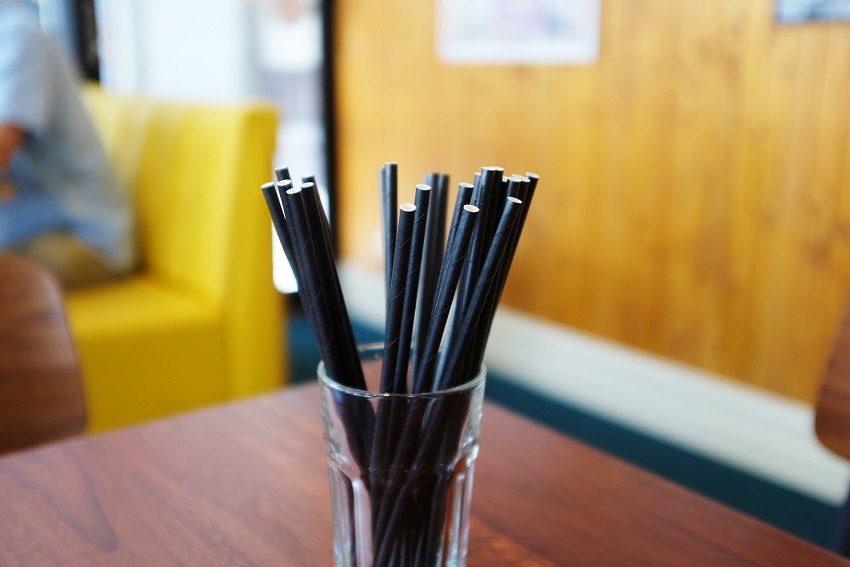Last straws: How Adelaide's bars are ditching plastic

While local and state government policymakers debate the merits of banning single-use plastics, many Adelaide pubs have been quietly finding solutions of their own.
Plastic straws are increasingly an endangered species in Adelaide venues. Highlighted by the likes of Craig Reucassel’s War On Waste and a variety of environmental groups, the impact of single use plastics – made vivid by images of the Great Pacific Trash – has emerged as a popular talking point when it comes to reducing pollution.
For some, it’s a fig leaf measure used by otherwise embattled Environment Ministers or councils to tout their sustainability credentials, putting the onus on consumers while the biggest polluters do their worst. For disability advocates, a blanket ban raises more problems. But, like cafés embracing the Keep Cup trend, many Adelaide pubs and bars have been quietly phasing out plastic straws of their own accord – with a variety of replacement solutions.
“I personally saw a video of a turtle with a straw stuffed up its nose being pulled out with pliers a couple of years ago,” Matthew Farmer tells The Adelaide Review. “That triggered the thought process that this is not a good thing to be doing.”
For nearly a year Farmer’s pub, the Hotel Metro, has replaced plastic with a biodegradable alternative. “They’re infinitely more expensive but that was by the by. What we decided to do at the same time was to not offer people straws, and they can request it, rather than putting a straw in a drink by force of habit.”

“Our logic was that most people don’t drink out of straws at home. People could ask for a straw and we’d be happy to supply them, but have a chat to them at the same time about the responsible disposal of them. Being single-use products they still have to be disposed of responsibly, but they do break down over a few months. They’re less likely to find their way into the waterways and ocean as a result.”
One street over, the Franklin Hotel is entering its third year with paper over plastic. “The manager was keen to be the first rather than jumping on,” the Franklin’s Jodi Pettigrew says. While they haven’t instituted a strict policy on automatically handing out straws, they’ve noticed customers are already responding. “You do find the old straw left on the bar, which is wastage you can prevent.”
The Franklin had to cope with a brief shortage in December and November. “I think the demand just spiked, especially in the CBD. I haven’t been to too many venues still rocking the plastic straws.”

Heading east, the Exeter Hotel also made the switch to paper six months ago, while Grote Street’s The Golden Wattle has used paper since opening in October. The Stag Public House have offered straws made of pasta since reopening last year, while the Metro uses straws made from a biodegradeable material sourced from Perth company I’m Not Plastic Co.
“It took us a little while to find the right product,” Farmer says. “We wanted to use something we could be sure was a biodegradable product; there are quite a number overseas but the packaging and cost of getting them here was an issue.”
“In terms of our customers there was really positive feedback, most of the feedback was that it’s a great thing to be doing. It created a sense of consciousness in our customer base about what they were doing as a matter of reflex.”
“These paper straws don’t typically look super paper-y, so when they’re in the drink people pick them up to see if they’re plastic or paper before using them,” says Pettigrew, who has also noticed a change in how customers are responding to the straw issue. “People are definitely paying attention more that’s for sure.”
For the Metro, the economic argument for reducing waste has also been compelling. “We were going through 2,000 straws every two months… we’re still on our first supply of 1,000 straws nine months later. Were using dramatically less, and what we are using is a much better product. The cost was four times the plastic, and we’re using 20 per cent of the volume. So we’re in front on both ledgers.”
There is just one issue remaining however: most of the pubs we spoke to were still left with various quantities of plastic straws until they find an easy way to recycle them.
“We’re not quite sure how to get rid of those,” Farmer says of the Metro’s last cache of plastic. “We won’t be using them and they’re not getting up any turtle’s noses when they’re sitting in our cupboard… but we’re not sure what to do with them at this stage. I don’ want them to go to landfill or be burnt, but from my perspective as long as they’re not out in the environment.
“We’ll never purchase them again.”
